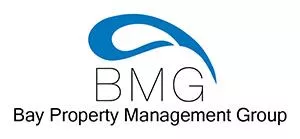What Is Hypothecation in Real Estate and How Does It Work?
Investors use several strategies to finance assets, whether through a mortgage, hard money loan, or another method. However, one strategy that’s not widely discussed is real estate hypothecation. Although it’s generally used for commercial real estate, hypothecation is a great way to leverage your assets and obtain a loan for a residential property. Read along to learn more about hypothecation in real estate and how it works.

Contents of This Article:
- What Is Hypothecation in Real Estate?
- How Does Hypothecation Work?
- Pros and Cons of Hypothecation
- Hypothecation vs. Rehypothecation
- Essential Clauses of a Hypothecation Deed
- Grow Your Business With Property Management
What Is Hypothecation in Real Estate?
Hypothecation in real estate is when a borrower offers collateral, such as a primary residence or rental property, to get a loan. If borrowers cannot repay their mortgage loan, they use their pledged assets as extra collateral. However, you don’t transfer ownership of the pledged collateral to the lender. Instead, hypothecation places a lien against your asset, allowing the lender to seize it if you fail to pay.

Hypothecation is most common for buying commercial real estate. This is because many commercial lenders require extra collateral to be hypothecated when funding commercial properties. However, hypothecation can be used for residential real estate as well. Most commonly, it’s used when a lender is uncomfortable with a borrower’s debt-to-income ratio or other qualifications.
Pledging extra collateral helps financial institutions feel more willing to fund real estate loans. As such, real estate hypothecation is a valuable tool for investors that don’t have great credit or don’t quite meet the requirements for a loan. If you’re an investor wanting to learn more about funding investment properties, read along as we go over how hypothecation works.
How Does Hypothecation Work?
Rental investors looking to buy more properties may want to get things moving quickly. However, if you’re looking for a loan but don’t have enough capital to meet the required down payment, you may hypothecate an asset to complete the entire amount. For example, suppose your lender needs a $30,000 down payment, but you only have $20,000 to put down. Instead of waiting to raise another $10,000, you can use an asset like your car or home.
That way, you can buy your investment property immediately instead of waiting weeks, months, or even years to meet the required down payment. When you hypothecate an asset, you and the lender enter into a mortgage and a promissory note for the property with a deal that includes the extra collateral. Then, you can get a loan, and the lender feels more inclined to lend money with additional collateral if you cannot pay the loan.
Pros and Cons of Hypothecation
Like any loan or funding method, there are a few pros and cons to consider with hypothecation. However, before making any financial decisions, it’s essential to consider how they may benefit you or put you at a disadvantage. As such, here are the most notable factors about hypothecation in real estate.
Benefits of Hypothecation
- Lower Interest Rates- When a borrower offers collateral for a mortgage loan, the rates are lower.
- Availability- Hypothecation loans are secure, meaning they are competitive among lenders and readily available for borrowers.

- Possession and Ownership- Although you use personal property as collateral to get a loan, you still retain possession and ownership of it.
Disadvantages of Hypothecation
- Loss of Collateral- If you default on a hypothecation loan or fail to comply with the loan terms, you could lose your collateral to the lender.
- Costly Legal Action- If the lender can’t recover the unpaid loan even after selling the asset, you could face severe financial or legal penalties.
- Longer Loan Period- Although you may have a lower interest rate, the loan period may be more extended for a hypothecation loan.
Hypothecation vs. Rehypothecation
Rehypothecation refers to the use of collateral that has been posted by clients by banks and brokers for their own purposes. Those who permit rehypothecation of their collateral may receive either a fee rebate or a lower borrowing rate. For instance, a lender may use a multifamily property offered as collateral for a commercial real estate loan as collateral for a new loan.
Sound confusing? It’s a bit hard to follow, and rehypothecation is a less common practice today. Generally, brokers rehypothecate assets when they need temporary working capital. In rehypothecation, the asset in question has been transferred outside of the borrower’s original plan. However, hypothecation is more straightforward and commonly used for some real estate loans.
Essential Clauses of a Hypothecation Deed
When you work with a bank, financial institution, or another lender for a hypothecation deal, it’s crucial to build terms and conditions with a deed. A hypothecation deed should establish contractual relations and expectations between the lender and borrower.

For instance, the lender must agree to grant a loan amount to a borrower in return for an asset provided as collateral. If the borrower doesn’t meet terms and conditions, they give up their secured asset, and lenders have the right to seize the possession.
Before entering a hypothecation agreement, you’ll want to understand the included clauses. While the process seems straightforward, the agreement can be complex and generally favors the lender. As such, borrowers need to read through the agreement to ensure they understand what they’re signing up for.
Here are some essential clauses of a hypothecation deed to pay attention to.
Obligations of the Parties
The obligations clause discusses the rights and liabilities of both parties regarding the loan amount and asset offered as collateral. In addition, it states the mode of loan disbursement, the number of installments, and the conditions to meet before disbursement.
Security
The security clause details the type of security provided as collateral against the loan. For instance, properties used as collateral are known as secured or hypothecated properties. In addition, this clause includes insurance charges, repairs, and maintenance costs for the secured property.
Title and Ownership
This clause is crucial for borrowers, as it states that the borrower retains the title and ownership of hypothecated assets and their earnings. Additionally, it states that the lender may seize the collateral if the borrower fails to pay or breaks the terms and conditions.

Interest and Default Interest Rate
It’s important to know the interest rate to be paid on the loan until repayment is complete. Additionally, this clause states the default interest rate for the borrower upon default in repayment. Nonpayment generally results in a higher interest rate.
Repayment of Loan
Like any repayment clause in a loan agreement, this clause states the agreement of both parties regarding the repayment period of a loan. Additionally, it states the mode and manner in which the borrower, including details and contingencies, will make the repayment.
Insolvency
This clause explains how the lender will recover the unpaid loan if the borrower is declared insolvent. It also describes the right of the lender to possess the hypothecated asset to recover the loan.
Representations and Warranties
This clause states all the statements and guarantees of the lender and borrower under the agreement. Additionally, it states that all parties agree to offer the necessary and required actions to fulfill their duties and obligations.
Grow Your Business With Property Management
Hypothecation in real estate is a valuable strategy for investors who want to expand their rental business. However, investing in more rentals means taking on more responsibility. If you don’t have the time or simply don’t want to manage several rental properties, you’re in luck–you don’t have to!
Bay Property Management Group is a full-service company specializing in all things Northern Virginia property management. Whether you own one rental or 100, our industry professionals can help manage and maintain them. Contact BMG today to learn more about our services near Northern Virginia.



